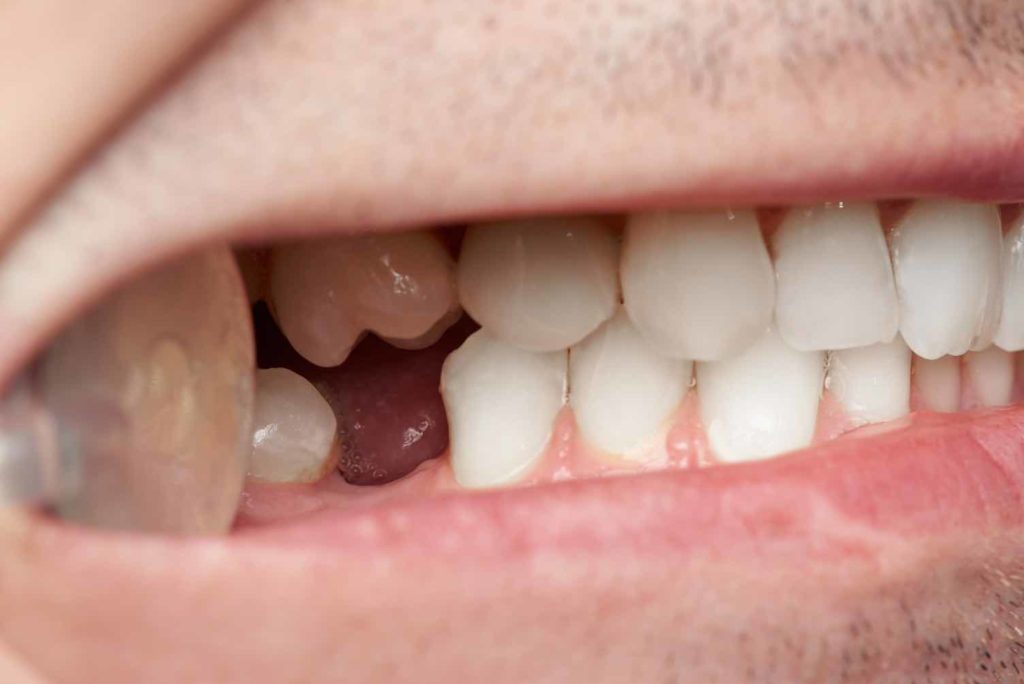
Everyone needs a full set of teeth to eat, speak, and smile with confidence. However, in some cases, an extraction is the best option for your current and future oral health. While a dentist may recommend this procedure in various situations, they’ll almost always encourage you to replace the missing tooth (or teeth) at some point down the road. Fortunately, there are excellent options to beautifully restore your smile, including dental implants. Keep reading below to learn about the common reasons for extractions and why it’s so important to replace your missing teeth!
Why Do You Need an Extraction?
Here are a few common reasons for an extraction:
- Severe cavities or toothaches – If you have an emergency toothache, it may be caused by a severe cavity or dental infection. In some cases, the cavity has destroyed most or all of a tooth’s structure, leaving it unable to support a filling or crown.
- Large fractures – Fractures can develop from clenching and grinding, heavy chewing forces or simple wear-and-tear. If they’re particularly large or run vertically, the tooth usually can’t be saved.
- Accidents or injuries – Irreparable damage can also be caused by injuries or accidents.
- Gum disease – It may surprise you to learn that gum disease is the leading cause of tooth loss. This is because it progressively destroys the gums and underlying bone that support the teeth. In advanced cases, the teeth eventually become loose and fall out or need to be extracted.
What Happens If I Don’t Replace a Missing Tooth?
Many people think that missing a single tooth or several teeth isn’t a big deal, but it often leads to more serious problems in the long-run:
- Bone loss – As soon as a tooth is lost, the jawbone that once surrounded the root starts to deteriorate. Over time, the jaw becomes thinner and weaker, which leads to a sagging or aged appearance in the face.
- Higher risk of gum disease and cavities – An empty space causes the surrounding teeth to shift or tip forward, which creates space for plaque and bacteria to hide. This makes them more susceptible to gum problems and cavities.
- Alignment issues – A missing tooth can cause bite alignment issues as well as uneven wear on the teeth and jaw pain.
- Loss of function – A missing tooth or teeth can make it difficult to chew or speak clearly.
- Lower self-confidence – A gap in your smile often means less confidence.
- More tooth loss later on – Eventually, leaving an empty space can lead to the loss of more teeth.
What Are Your Options To Replace a Missing Tooth?
Regardless of how many teeth you’re missing, modern dentistry offers fantastic treatment options for every situation, including bridges, dentures, and dental implants.
To find out which one is right for you, the first step is a consultation with an experienced dentist. After they’ve evaluated your medical and dental history, overall goals, age, lifestyle and budget, they’ll recommend the best option to prevent the complications mentioned above and give you a healthy, complete smile once again.
About the Author
Dr. Douglas Gordon is a family dentist with nearly 40 years of experience and a graduate of the New York University College of Dentistry. When necessary, he recommends extractions to improve his patients’ oral health and offers multiple replacement options, including bridges, dentures, dental implants and more. If you’d like to know more about these procedures or have any questions, he can be reached via his website.
